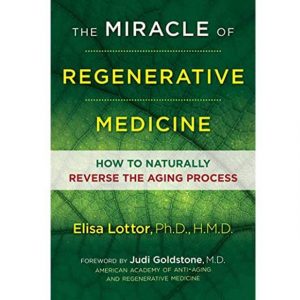Progesterone
Progesterone is one of the first hormones to decline in women starting around age 35. When levels start to fall, women may experience anxiety, panic attacks, lighter sleep, PMS, headaches, mood swings, fibroids, breast and ovarian cysts, heavier or irregular bleeding, and abdominal weight gain. Progesterone, with estrogen, regulates the menstrual cycle. It is essential for creating and maintaining a pregnancy, and balancing other effects of estrogen. Progesterone is produced by the ovary, placenta, and adrenal glands in women and a small amount is produced by the adrenal glands in men.
Progesterone is responsible for regulating several bodily functions. It plays an important role in brain function and is often called the “feel good hormone” because of its mood-enhancing and anti-depressant effects. Optimum levels of progesterone promote feelings of calm and well-being, while low levels can cause anxiety, irritability, and anger.
Estrogen is “pro-growth” (causing the cells in the uterus to multiply during a menstrual cycle), and progesterone is “anti-growth”. Progesterone balances the stimulating/pro-growth effects of estrogen on breast and endometrial tissue and helps protect against endometrial and breast cancer. It also balances the following effects of excess estrogen: water retention, fat accumulation, and uterine bleeding. Progesterone is a diuretic and rids the body of excess salt and water.
It enhances the sensitivity of the body to insulin and therefore helps to maintain normal blood sugar levels. It also builds bone and benefits the cardiovascular system by blocking plaque formation in the blood vessels and lowering triglyceride levels. Progesterone increases libido, improves mood, promotes the breakdown of fat,increases energy and aids thyroid function. It plays an important role in reducing or helping prevent motor, cognitive, and sensory impairments in both men and women.
Low levels of progesterone can be caused by several mechanisms. Excessive stress lowers progesterone levels because progesterone will be converted to cortisol to fight the stress. In addition, poor food choices, inadequate sleep, and lack of exercise can lead to progesterone deficiency.
Supplementing with bioidentical progesterone:
- Promotes the breakdown of fat
- Maintains the lining of the uterus
- Facilitates sleep
- Helps maintain sex drive
- Stimulates formation of new bone, thus helping prevent or reverse osteoporosis
- Increases energy
- Protects against endometrial and breast cancer
- Protects against fibrocystic breasts
- Helps maintain normal blood sugar levels
- Balances side effects of excess estrogen – reduces fluid retention, bloating, headache, bleeding, and fibroids
- Rids the body of excess salt and water
- Decreases headache and bloating that accompany menstruation
- Acts as an antidepressant
- Protects against atherosclerosis by maintaining healthy hdl levels
- Facilitates thyroid hormone action
- Decreases the risk of blood clots
- Normalizes menstrual cycles
- Helps manage menopausal, perimenopausal and premenstrual symptoms
Contact Us Online
Our Office
— Sharon C.
I spent nearly a decade in hell due to 15 concussions and head trauma as a professional athlete. At the time I was recommended a more affordable option with Dr. Goldstone, as my health has limited my ability to work. I had seen internists and psychiatric dr.s regarding my ‘condition’ but instead off seeing…
Get In Touch With Us


